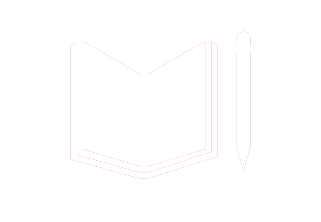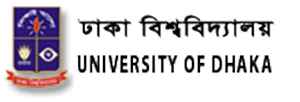Sustainable Development Goals

SDG 4: Quality Education
SDG 4: Quality Education
The University of Dhaka’s commitment to SDG 4: Quality Education is a comprehensive and impactful approach that promotes inclusive, equitable, and quality education while promoting lifelong learning. The initiatives demonstrate a commitment to addressing global and local challenges while enhancing the educational ecosystem. Here is an overview of their contributions across four key areas:
Shaping Future Leaders
Focused on delivering quality education and skills development to students and external learners.
- Certificate Courses and Specialized Training:
- Python, Data Analysis, Office Applications, and Web Technology by the Institute of Information Technology (IIT).
- Equity and Inclusion in Education:
Center for Bioinformatics Learning Advancement and Systematics Training (cBLAST): Free and discounted courses for underprivileged students - Advanced Learning Facilities:
- Free access to upgraded educational resources, seminar labs, and libraries for enrolled students in respective departments (e.g. Psychology, Graphic Design, Criminology), and residential halls. (e.g., Shahidullah and Ruqayyah Halls)
- Artistic and Creative Learning:
- Art exhibitions hosted by the Department of Printing and Publication Studies to enhance creative and practical learning experiences.
Innovative Solutions for Tomorrow
Promoting advanced knowledge creation and critical thinking across disciplines.
- Center for Advanced Research in Arts and Social Sciences (CARASS):
Courses like “Research Paradigms and Advanced Methodology” and a workshop on the Bangladesh Liberation War promote critical thinking, historical understanding, and advanced research skills
- Field-Based Learning:
Field study programs (e.g., timber market visits) provide hands-on learning in real-world contexts.
- Research Resources:
Access to academic journals, seminar rooms, and research labs in departments.
Sustainable Campus and Practices
Ensuring equitable access to education and resources, fostering inclusivity and sustainability.
- Financial Support:
- Department of Statistics Scholarships under the “Mitsubishi UFJ Foundation Scholarship Program FY 2023” encourage academic excellence and continuous learning.
- Institute of Information Technology (IIT)
- Offers non-traditional education in programming, data analysis, and web technologies to individuals outside the university.
- Discounts (20%) for university staff and students make these courses more accessible.
- Free access to upgraded educational resources, seminar labs, and libraries for enrolled students.
- Resource Accessibility:
- Free educational resources provided by IIT, residential halls, and other departments.
- Underprivileged Support:
- Free and discounted access to bioinformatics courses through cBLAST.
Empowering Communities for Change
Extending educational opportunities and promoting lifelong learning for a broader audience.
- Lifelong Learning Initiatives:
- IIT’s educational programs for non-university attendees in digital and technical skills.
- Finance Bootcamp 2023:
- Practical financial training for students to address real-world market challenges.
- Collaborative Efforts:
- Joint programs like the Climate Change and Public Health certificate with the Ministry of Health and Welfare, the course launched on September 15, 2023, emphasize the intersection of environmental and public health, fostering awareness and skill-building in these critical areas.
Global Partnerships and Impact
These programs collectively address SDG 4 by:
- Enhancing accessibility through scholarships and free resources.
- Bridging the gap between traditional and lifelong learning.
- Equipping students with real-world skills through interdisciplinary and experiential learning.
- Promoting inclusive education by catering to diverse financial and social backgrounds.
The University of Dhaka exemplifies a sustainable and inclusive approach to fostering global competence, critical thinking, and innovative solutions through quality education.

